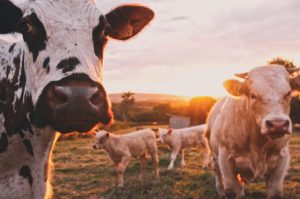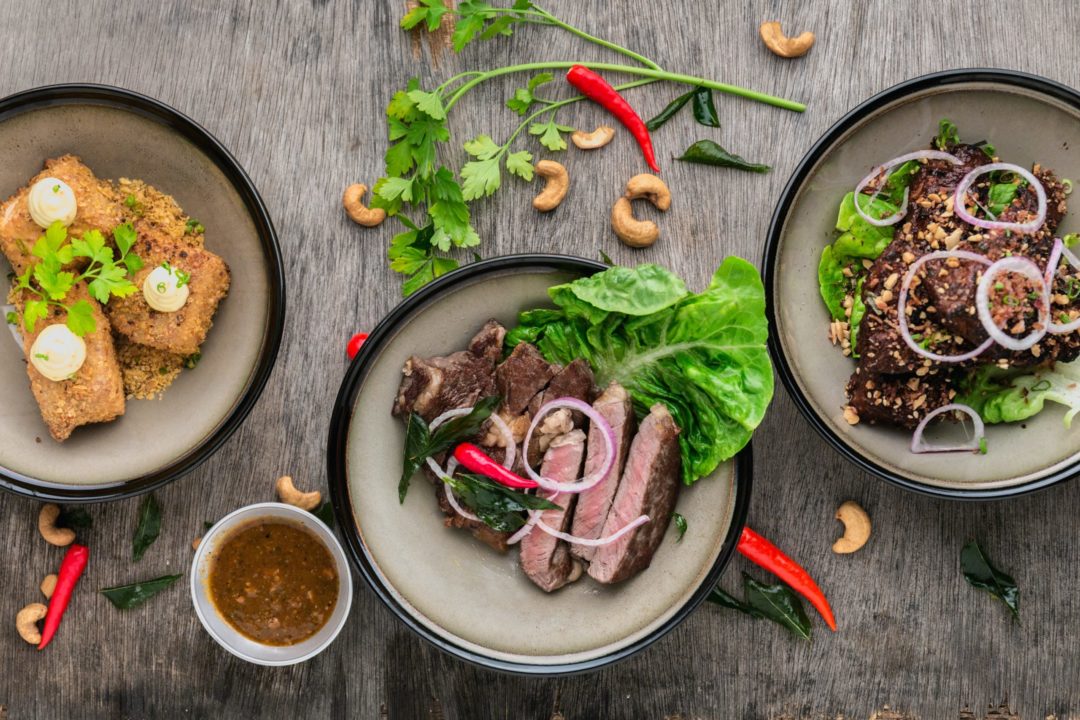Choosing an integrative route to deal with your cancer diagnosis can be really hard for lots of different reasons. One of the biggest though is that there is just so much information out there to wade through and a lot of it conflicts or hasn’t been proven conclusively through the golden standard of trials, the randomised double blind placebo control study.
And nowhere is this more true than when it comes to diet and cancer. I don’t know about you, but this was one of the toughest areas of my protocol for me to figure out! There is vegan, keto, paleo, vegetarian. Then there are questions like should I eat soy, should I avoid every type of carb, are natural sugars okay? And SO MUCH of the information conflicts. Keto and vegan for example are two of the most popular diets for cancer, and yet they are often total opposites! If you are supposed to limit carbs like legumes but then you hear that animal protein should be avoided, where the heck do you get your protein from? And on and on.
The answer, like with so many things when it comes to cancer, is that you have to find the diet that works for YOU and YOUR body. I experimented with different diets like vegan and keto, not finding a good fit, losing a lot of weight, and feeling lousy a lot of the time until I took a bit from each of these diets. Now, I follow what I call a paleo flexitarian diet. Essentially, I avoid dairy, sugar, and processed grains (along with others, like unhealthy fats and processed foods in general), I eat plant-based about 4 days a week, and I have a serving of clean poultry or salmon the other 3 days. I had been told before that my blood type does better on an omnivore diet, and that definitely tracked with my experience. Twice now I have tried to be vegan, once when I was a teenager and again after my diagnosis, and I felt terrible both times. So, checking what typically works best for your blood type (although there are some holes in the theory) may be a good basic place to start, and then experiment within that window.
Because I do include some animal protein in my diet and because many others do too, I want to make it clear that not all animal products are created equal, and if you do choose to include meat in your diet, there are some very important things to keep in mind.
 1. Quality is the Name of the Game
1. Quality is the Name of the Game
It is absolutely imperative that you choose high quality animal products, and this means organic. It’s no secret that non-organic animals are raised with the use of hormones, antibiotics, and non-organic feed, meaning that all the pesticides that they eat in their food end up in their meat, dairy, and eggs. If I could choose only one area of my diet to make organic, it would be animal products. There are ways to greatly reduce the levels of pesticide residue on most fruits and vegetables; you can’t do anything about pesticide levels in your animal products, or the hormone or antibiotic levels either. Although any animal product is going to contain a certain amount of hormones and likely some toxin residues just by the nature of how toxic our world is today, by choosing organic, you are ensuring that you are at least getting the lowest levels of these things in your food.
 2. Grass-fed Versus Commercial Meat
2. Grass-fed Versus Commercial Meat
I avoid red meat because I have for years, unrelated to cancer. Also, it seems to be shown over and again that red meat poses more health risks than poultry and seafood, but there are mixed messages about it. If you really love your red meat, do a bit of research and see how you feel about it after. This is a great article to start with [1]. It is more on the side of supporting meat, but it does present some interesting info about prostate and premenopausal breast cancers. If you have or had one of these, it may be more important to limit your animal protein.
If you do decide to include red meat in your diet, it is important that as much as possible you choose not only organic but also grass-fed meat. Animals fed grain-heavy diets (like most commercial red meat) have skewed omega 6 to omega 3 ratios, meaning they have much higher levels of omega 6 fatty acids. Animals fed diets made up of primarily grass have appropriate omega 6:3 ratios. “A diet with a lot of omega-6 and not much omega-3 will increase inflammation. A diet of a lot of omega-3 and not much omega-6 will reduce inflammation” [2]. Therefore, a diet of primarily grass causes less inflammation in both the animals and the humans who eat them. We know that cancer loves inflammation and that cancer cells thrive in an inflamed environment, so doing everything we can to reduce our systemic inflammation is important, and this includes choosing grass-fed animal products.
 3. Safer Animal Products
3. Safer Animal Products
Cows are the most likely to get hormones, and with other concerns over red meat like increases in colon cancer [3], I feel good about excluding it personally. Poultry and seafood are generally considered healthier choices [4], and if you plan on including meat in your diet, those would be my suggestions for what to keep.
Additionally, processed meats such as cold cuts, bacon, and sausages also pose risks like increased rates of colon cancer [3], have crazy high levels of salt, and have the addition of baddies such as nitrates. So, it’s always best to choose an unprocessed meat, like a chicken breast or a fillet of salmon. You can of course make your own foods out of these base ingredients (like salmon or chicken burgers), but use your own whole foods versus buying these premade products at the store.
 4. Mitigating the Potential Negative Effects of Animal Products
4. Mitigating the Potential Negative Effects of Animal Products
And finally, if you do choose to include meat in your diet, there is one super important thing you can do to mitigate the potential negative effects on your body, and it’s something we should all be doing regularly anyway, especially if we’ve had cancer: EXERCISE! Eating animal products like meat and dairy increase your levels of the hormone IGF-1 [5]. We needs IGF-1, but levels that are too high promote the creation of new cancer cells and increase their proliferation [5].
Exercise is a huge factor for keeping IGF-1 within the normal range (too low isn’t good either!), but you need to be careful. Consistent, low-level aerobic exercise like walking, yoga, or low-intensity swimming, jogging, or biking have been shown to reduce circulating levels of IGF-1 while increasing insulin sensitivity and decreasing fasting insulin levels [6]. However, eccentric exercise or “over training” has been shown to lead to higher levels of IGF-1 [7], so it is important that you don’t include too much high-intensity exercise in your routine. Some higher intensity exercise is fine, but don’t make it every day. And make sure that low-level aerobic exercise is a part of your weekly routine, especially if you choose to eat meat, by aiming to exercise at least 5 days a week.
It can be extremely stressful when we feel we have to eat a certain way but we know it isn’t sitting well with our body. With these tips, I hope you feel more comfortable including meat in your diet if you are feeling like it’s the right choice for you.
Happy Healing ❤️
References:
- Does Meat Cause Cancer? Revisiting the Meat, IGF-1, and Cancer Connection – https://www.saragottfriedmd.com/does-meat-cause-cancer-revisiting-the-meat-igf-1-and-cancer-connection/
- How Too Much Omega-6 and Not Enough Omega-3 Is Making Us Sick – https://chriskresser.com/how-too-much-omega-6-and-not-enough-omega-3-is-making-us-sick/
- Red meat and colon cancer – https://www.health.harvard.edu/staying-healthy/red-meat-and-colon-cancer#:~:text=A%20meta%2Danalysis%20of%2029,meat%20increases%20risk%20by%2020%25.
- Meat, Poultry, and Fish: Picking Healthy Proteins – https://www.heart.org/en/healthy-living/healthy-eating/eat-smart/nutrition-basics/meat-poultry-and-fish-picking-healthy-proteins
- IGF-1, Diet and Cancer – https://www.vivahealth.org.uk/veganhealth/dont-feed-cancer/igf-1-diet-and-cancer
- Effect of Low-Intensity Aerobic Exercise on Insulin-Like Growth Factor-I and Insulin-Like Growth Factor-Binding Proteins in Healthy Men – https://www.hindawi.com/journals/ije/2010/452820/
- Effect of physical activity on IGF-1 and IGFBP levels in the context of civilization diseases prevention – https://pubmed.ncbi.nlm.nih.gov/27289505/




loved the meat suggestions for us carnivores